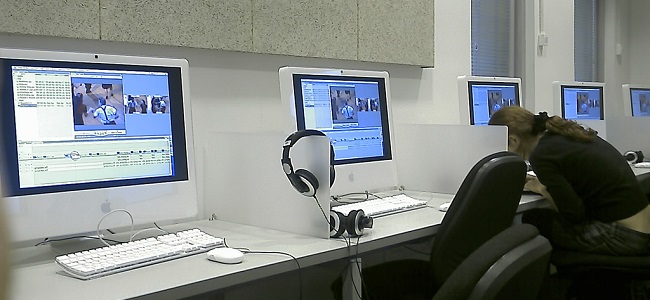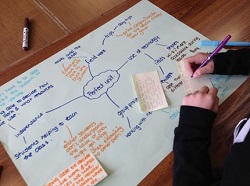Media Studies is a terrific subject, one that can offer terrific insight into journalism, the arts and more. Andrew Miller, teacher of Creative Media & Film at Queen Mary's College in Basingstoke, looks at why the subject is seen as being soft, and what Media Studies teachers can do to change that.

With a new academic year comes a new cohort of AS Media Studies students, and I ask them to produce a 750-word essay entitled ‘Why I chose Media Studies’. This introductory activity is aimed to give me an insight into each learner’s writing ability and style, but it has proven to have other benefits. The majority of learners will write about how the Media industries are an important part of the world that act as a force of good, but many have written about how they had to do another subject to make up a full programme, and how the person doing their enrolment said Media Studies would be “easy”.
As the 2012-13 school year comes to a close, teachers will be deciding what they should include in next year's curriculum. In this post, curriculum leader for Geography David Rogers describes a five-step method he implemented in his school which gave students in Years 7 to 9 the opportunity to decide for themselves what makes a 'perfect lesson' and then write their ideas onto the schemes of work in Google Docs. In this way, students can effectively - and lawfully - 'hack' their curriculum!

Lots of schools and teachers bang on about giving students a voice, but very few actually allow them to have one. At Priory Geography, we have developed a strong culture of allowing young people to get involved in making decisions about school life, for example:

People who have read my #marginalgains blog posts will know I am going over old ground here – intentionally so – as I am looking to dig deeper towards the key marginal gains that have the biggest impact on learning. For me, formative oral feedback and questioning are the two key ‘hinge point marginal gains’ that make for great teaching and learning. My previous #marginalgains blog identified new teaching strategies for these two key area of pedagogy, but here I wanted to use this blog to reflect on what I view as the most high impact formative oral feedback strategies that I have been using in my everyday practice. I want to use my list as a reminder, each time I plan lessons, of the key strategies to use – as it is too easy to forget and slip into autopilot planning, forgetting even our most effective of strategies.
In the latest OFSTED guidance, they have clearly stated that lesson planning should not be inflexible, that teachers should react to the progress, or the lack thereof, of their students. This is heartening recognition of what we have known all along – and that is that teaching and learning are contingent activities. Learning is often problematic, changeable, non-linear, beset by a host of unique factors that cannot be exactly replicated (but with experience we can determine common patterns). We must therefore be constantly tracking the evidence of learning with as much precision and skill as we can. That is why effective teaching hinges absolutely on oral formative feedback and questioning on a lesson by lesson basis. It appears to me that the greatest benefit of experience that I observe in excellent teachers is the recognition of how and when to elicit feedback, with the nuanced understanding of what questions to ask, how and when. I have drawn upon this wealth of experience for my top ten – indeed it is my inept stumbling near the shoulders of giants that is responsible for the whole lot!

A community-driven platform for showcasing the latest innovations and voices in schools
Pioneer House
North Road
Ellesmere Port
CH65 1AD
United Kingdom